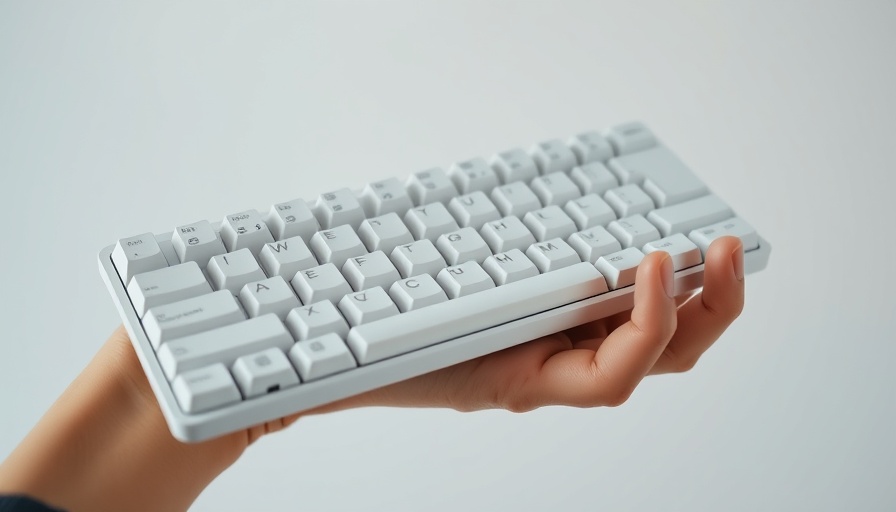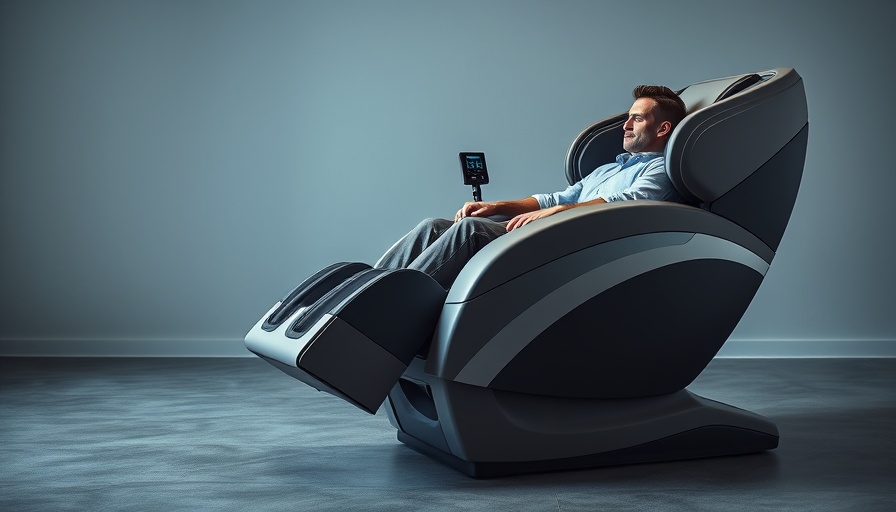
The Fascinating World of Keyboard Soundscapes
If you’ve ever spent time working or gaming on a mechanical keyboard, you know how satisfying the sound of clicking keys can be. The video "Listen to this Keyboard (SOUND ON)" takes us on an auditory journey through the unique soundscapes produced by different keyboard types, offering more than just a melody of clicks — it introduces us to a culture where sound matters. In a world dominated by digital interfaces, the sound of a keyboard can evoke a sense of nostalgia, efficiency, and an emotional connection to our tech tools.
In "Listen to this Keyboard (SOUND ON)", the exploration of keyboard sounds reveals a fascinating culture that enhances our digital interactions, inspiring us to delve deeper into its nuances.
Why Sound Matters in the Digital Age
Sound isn't just an accessory; it shapes our experience. The audio feedback from a keyboard can influence productivity, creativity, and even our emotional state. For many, the rhythmic tapping of keys serves as a comforting background noise that creates an engaging work environment. Studies show that ambient sounds like keyboard clicks can enhance focus and help individuals maintain their workflow. So, when you’re slamming those keys down in a crucial gaming session, remember that the sound might be doing more for you than you realize.
Shaping Communities: The Keyboard Culture
There’s an entire subculture dedicated to keyboard enthusiasts. From DIY builders crafting custom PCBs (printed circuit boards) to those who have a penchant for vintage typewriters, the love for keyboards transcends mere utility. Keyboards have become a canvas for self-expression, with custom keycaps, RGB lighting, and distinct sound signatures. This community thrives on online forums and social media, where sound comparisons and modifications are eagerly shared. People bond over the tactile experience of typing and the auditory signatures that come with it.
Comparing Mechanical vs. Membrane Keyboards: A Symphony of Sounds
Mechanical keyboards are often celebrated for their crisp sounds and tactile feedback. In contrast, membrane keyboards provide a quieter typing experience. This difference is not just about volume; it’s about the tactile feel and auditory feedback that each type provides. Enthusiasts argue that the sound of mechanical keyboards can enhance typing speed as the audible clicks serve as confirmation with each keystroke. The choice often boils down to personal preference — some people love the sound while others prefer silence, their type of symphony.
Innovative Tech Trends on the Horizon
As industry standards evolve, so too do our keyboards. Companies are now innovating towards quieter typing experiences that can mimic the sound of traditional mechanical keyboards without the noise. This trend is particularly appealing for those working in shared spaces or who simply prefer a quieter typing experience. Hybrid keyboards are now on the rise, incorporating sound dampening technologies to offer users the best of both worlds — tactile feedback and reduced noise levels.
The Emotional Weight of Sound
Sound evokes feelings. For many writers, gamers, and professionals, the sound of typing can spark creativity or intensify focus. The rhythmic nature of typing, combined with the right keyboard sound, can elevate a mundane task into a pleasurable exercise. This emotional relationship highlights the necessity of not just functionality but sound signature preferences leading to a more fulfilling digital life.
Conclusion: What Keyboards Tell Us About Ourselves
Exploring the sound of keyboards opens the door to understanding ourselves in this digital age. The tools we use are extensions of our personality and preferences, showcasing not just our work but our individuality. In a time when digital relationships often overshadow physical ones, the sound of typing can serve as a bridge, connecting us to our work and the greater community of keyboard enthusiasts. So, the next time you sit down in front of your keyboard, take a moment to appreciate not just the software you're engaging with, but the sound that accompanies it — it’s a symphony that defines your digital experience.
 Add Row
Add Row  Add
Add 




 Add Row
Add Row  Add
Add 
Write A Comment